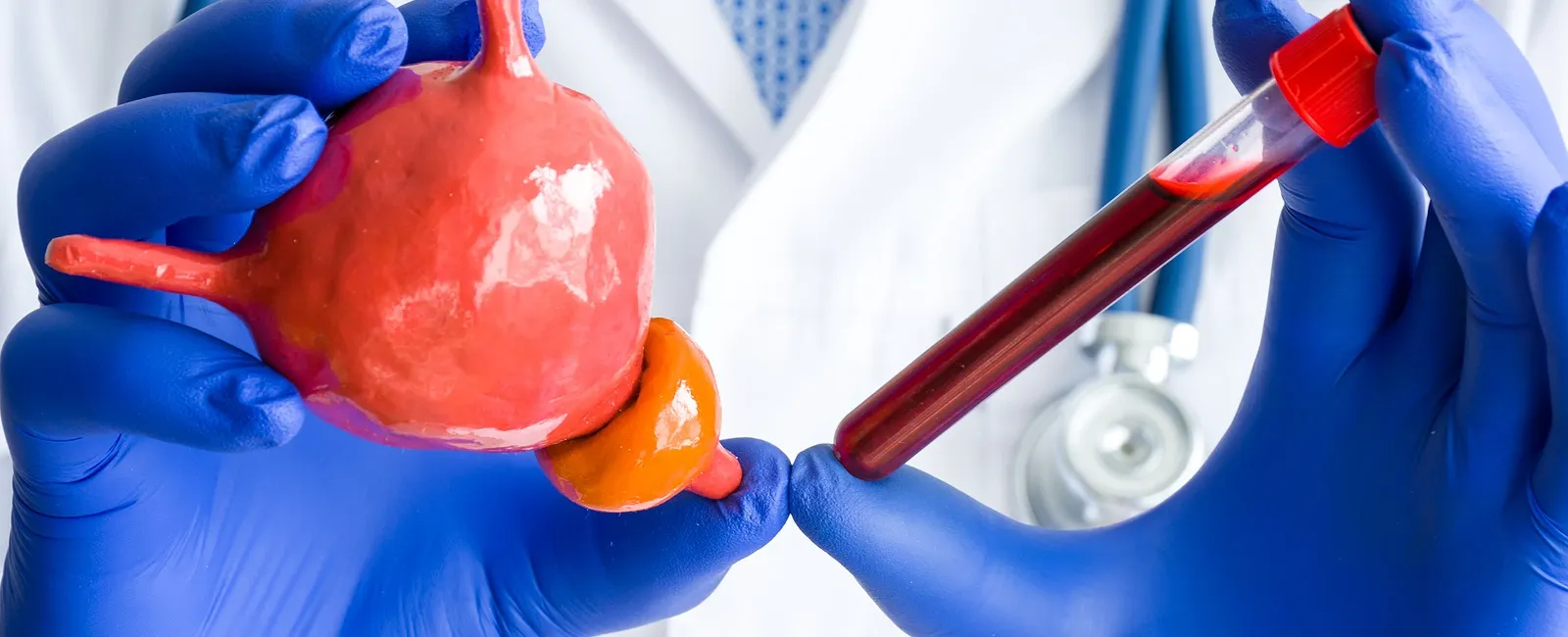October 20, 2021
What Does Having a High PSA Level Mean?
Your body fights off foreign substances like viruses or other diseases with proteins called antigens. Antigens are produced throughout the body and can indicate if there is a problem with a specific region. For example, men produce prostate-specific antigen (PSA) which can signal potential problems with prostate or urinary tract health if levels are too high.
What is Prostate-specific Antigen?
Prostate-specific antigen, also known as PSA, is a protein produced in the prostate gland. When there are issues with the prostate gland, it affects the amount of PSA that is produced. A high PSA level can indicate a range of bigger health problems from urinary tract infection to cancer.
How is PSA level tested?
PSA level is tested with a PSA test, which is performed through a simple blood draw that shows the amount of PSA in a man’s blood stream.
What does having a high PSA level mean?
An elevated PSA level can indicate something is wrong with the prostate or an issue with another area of the body that is impacting the prostate. Although there is no “standard” range for PSA level, typically, if a man has a PSA level above 4.0 ng/mL he should have further testing done to check for larger health problems.
What can cause PSA to rise quickly?
Sudden elevated PSA can be caused by prostatitis. Prostatitis is inflammation of the prostate. When the prostate is inflamed, it can be difficult or painful to urinate. If you have prostatitis, you may experience a persistent urge to urinate, wake up at night to urinate, or feel like you need to make frequent trips to the restroom. You may also have pain in the testicles or anorectal region or general pelvic discomfort. Chronic prostatitis is usually caused by autoimmune diseases, stress, and pelvic floor spasms. Urinary tract infections, bladder infections, urinary retention, and prostate stones usually cause bacterial prostatitis. Prostatitis is usually treated with antibiotics.
How high can PSA levels go with prostatitis?
PSA levels can vary by age and individual. As mentioned before, there is no “standard range” for PSA levels, but typically anything greater than 4.0 ng/mL indicates a problem. However, your PSA level can be below 4.0 ng/mL and you can have prostatitis. After antibiotic treatment, an elevated PSA level due to prostatitis should decline.
Can a UTI raise PSA levels?
Yes. This is another cause of a high PSA level that can be treated with antibiotics. For elevated PSA levels caused by a urinary tract infection (UTI), your doctor can prescribe a course of antibiotics to treat the infection. After treatment, your PSA level should decline.
Can kidney stones affect your PSA count?
Typically, no. While kidney infections or UTIs can cause an elevated PSA count, kidney stones generally do not. Kidney stones are formed in the kidneys and pass through the bladder and urethra. PSA is produced in the prostate. If you had a kidney stone that got caught in your urethra at the prostate, and caused further inflammation of the prostate, it could result in a spike in your PSA level.
Other Reasons for an Elevated PSA Test
In addition to urinary tract infection and prostatitis, there are other reasons that can cause a high PSA level. These include:
- Benign prostatic hyperplasia (BPH) – Benign prostatic hyperplasia, also known as BPH, is enlargement of the prostate caused by aging. An enlarged prostate can produce higher levels of PSA. There are treatments available for BPH.
- Medical procedures – A prostate exam or digital rectal exam can result in inflammation of the prostate and increased PSA levels. A urinary catheter or urethral scope can also cause higher PSA levels. For accurate results, wait a few weeks after having a medical procedure done before having a PSA test.
- Age – It is normal for PSA levels to gradually trend up with age. If the rise in your PSA level is slow, and consistent with your age, there is likely no concern.
- Cancer – An elevated PSA level does not mean you have cancer but most men with prostate cancer do have an elevated PSA level. If you have an elevated PSA level your doctor may perform a digital rectal exam to check for lumps on the prostate. They will also likely order another PSA test to see if your level continues to rise. They may order imaging tests to check for cancer on the prostate. If you are receiving treatment for prostate cancer, your doctor will likely monitor your PSA level to help determine how effective treatment is. If PSA decreases, it can indicate that treatment is effective.
When to See a Doctor
Some of the first symptoms of patients who have an elevated PSA level is difficult or painful urination, pain in the abdomen or pelvic area, and a frequent urge to urinate. These symptoms can be signs of BPH, prostatitis, prostate cancer, and kidney stones—all of which require different treatment. If you are experiencing any of these symptoms, it is important to talk with your doctor. Your doctor will be able to help determine the cause of your problems and provide an individualized treatment plan.




